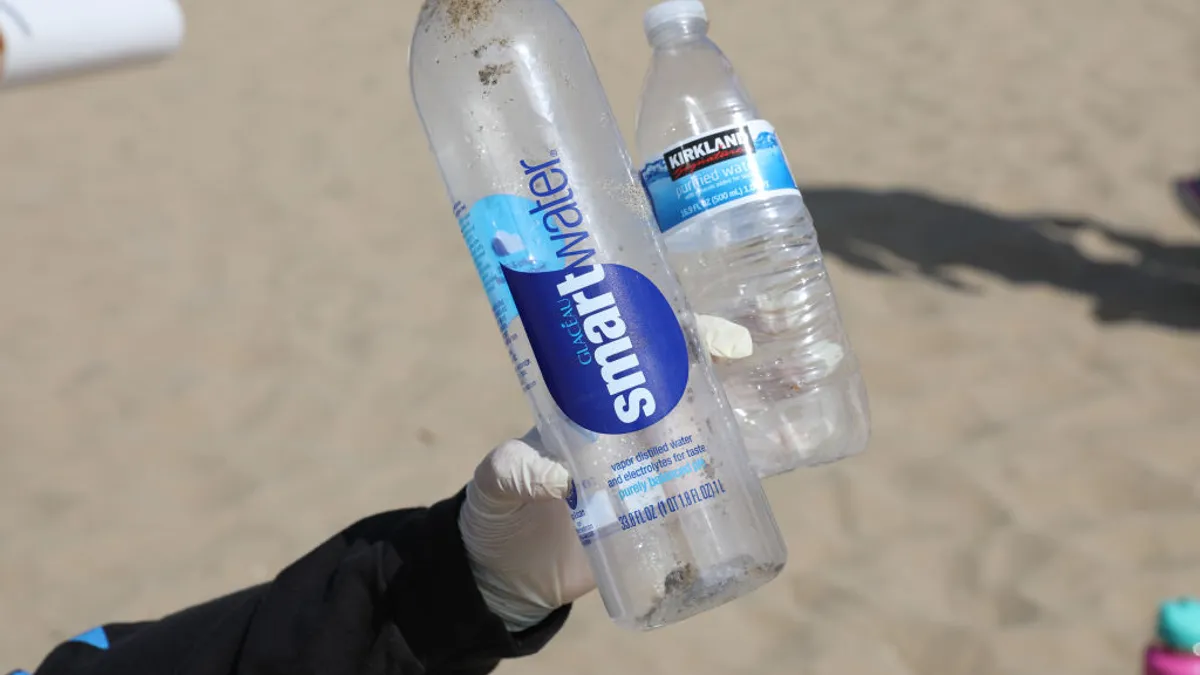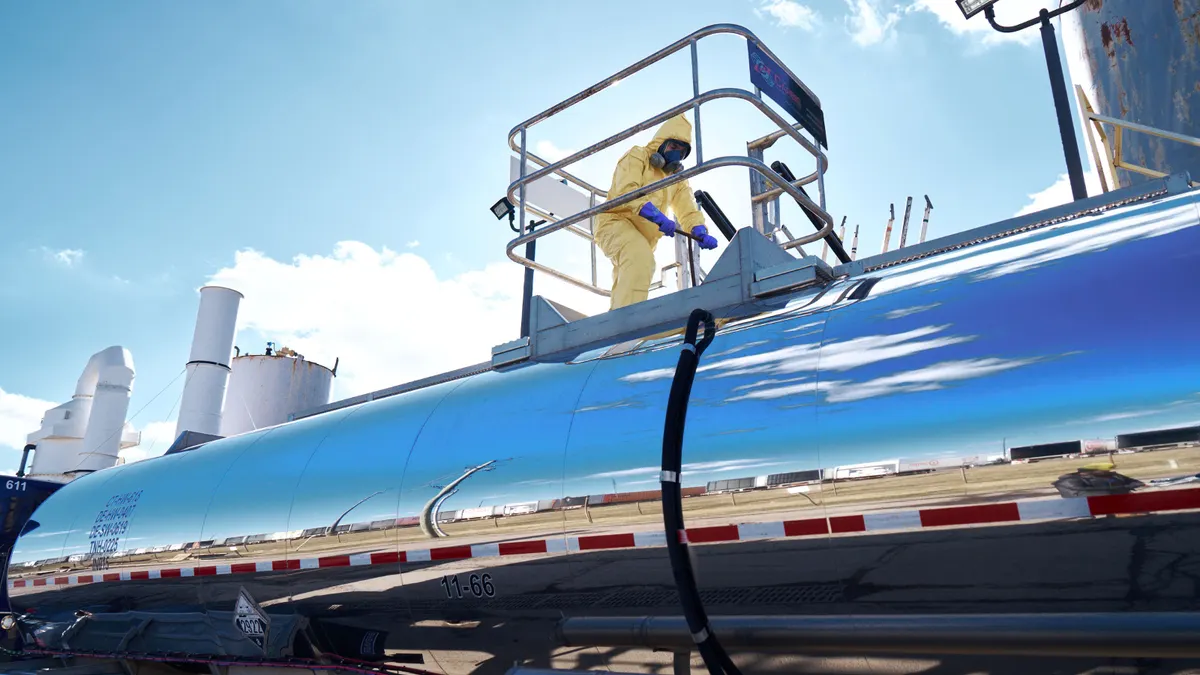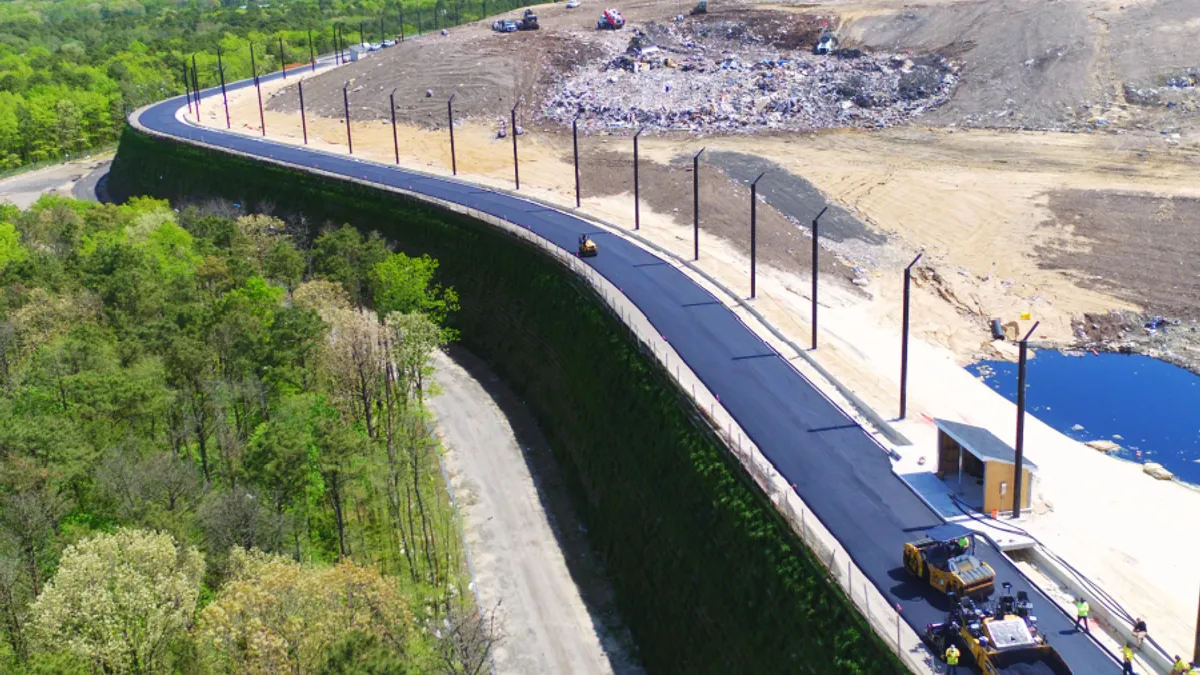Earlier this month, Recyclebank lost its contract with Waste Connections in Wichita, Kansas, and Recycling Perks took over. Residents there showed preference for recycling incentives with a more local focus.
Waste Dive spoke with Recycling Perks President Bill Dempsey to discuss how companies such as his can help improve efficiency in the recycling industry, given the recent market upheaval. Recycling Perks, which first began its recycling incentive program in 2011, is a company under the Verde umbrella that partners with local municipalities to boost recycling rates. Under this scheme, residents earn points toward discounts at local businesses.
The following conversation has been edited for clarity and brevity.
WASTE DIVE: What’s the incentive for a recycling company to partner with Recycling Perks?
BILL DEMPSEY: We speak directly to residents and we do that in a multitude of ways. One is by hiring people directly in the market to manage that program. We can be at events, do mailers and can utilize the data that is collected on a day-to-day basis to really get an understanding of not only who is recycling, but who is not recycling, and that allows us to then develop a plan based on demographics and geographically as to where we need to focus. Because of issues with China, making sure people are recycling the right material and putting the right material in the containers so there is less contamination and people have the understanding of what needs to be done specifically in their market.
How is your model different than other competitors?
DEMPSEY: We really believe that all trash and recycling is local so the program should be local, meaning we engage with local business and local nonprofits to help give money back to the community and help reach people that are part of their programs to educate them on the benefits of recycling and doing things right as it relates to their community.
I know that Recyclebank does not have a local market rep. When we go into a market, we hire someone from that particular market. That person has an understanding of what are the good places to go to, of what the town or municipality is trying to do. They act as a liaison between us, the hauler or the city.
A lot of times, cities say ‘how are we doing?’ and they say ‘we're doing pretty good.’ Well, can you define 'pretty good?' We make sure that we are reporting who has recycled, who hasn't recycled, what did we do for education, how many people have signed up, how many businesses we have [as participants] and how many events have we gone to. For me, the biggest difference is is that we communicate as much as needed in response to the people that we serve.
Have you seen participation rate, capture rate or diversion rates go up by any percentage in any cities?
DEMPSEY: We continue to strive and we're only as good as the data we get, whether it's the MRF, the scale house or whatever.
So when we look at an area that — let's just say they have 20% participation — how do we then get into that neighborhood? How do we develop programs that engage those residents to where they recycle more? In a lot of cases, we see participation increase from 25-40% by developing specific programs that target that particular part of the city. And we go back to check to make sure that it's not a one-hit wonder, but that it is something that's sustainable.
Have contamination rates gone down since implementation of your program?
DEMPSEY: Absolutely. One of the things that we have learned over the course of running this company is that evolving ton that everyone talks about. Packaging has become a little bit different and material has become a little bit lighter. Our goal is to educate and to get people to participate.
We really promote not only just making sure you put the right thing in that container, we also promote when you're going to buy something, have a thought process of, ‘Do I need this? If I buy this, how do I dispose of the item I'm replacing?’ Or ‘If I'm replacing something, what can I do with that old item? What's the proper way of disposing it? Do I have any ability to reuse it?’ So it really is many different thought processes that go into each purchase. And not only that, how do we make sure that the resident is fully educated to the point of what they need to do not only with what they're purchasing now, but what they have and how do they dispose of it?
Waste Connections CEO Ronald Mittelstaedt has been pretty vocal about how recycling should not be cheaper than trash. Do you agree with that notion?
DEMPSEY: That's a loaded question because we're in the recycling business. I think the challenges that the United States has are that we have been for the most part ... we don't manage material, we don't sell material — we don't do any of that stuff.
If you look at bids that came out eight years ago — I'll make up a number of $5 a house — and somebody comes out and rebids that three or four years later, they're looking for it to be $4 a house. So you can't continue to just cut pricing and expect any kind of change in revenue. I think that in the United States we have to do a better job at developing businesses that utilize the material that is being recycled. If the majority of our recycling is sent overseas to be processed and made into something else, when that buyer goes away, where else can we take that material? What else can we do? I think that in this country, we've got some challenges and we've got some time to wait before some of those things can be created and made.
There are great stories about WTE because you can put everything in there and burn it, and it becomes electricity. Well, at the end of the day, you're still not recovering some of that material that can be remade into more aluminum cans or remade into cardboard boxes. So then you're getting into using virgin material and eventually we're going to run out of aluminum somewhere, right? I think there are a lot of changes that need to take place as it relates to the businesses that will support the amount of recycling.
To answer your question, should recycling be less than trash? I think that that is something that could be answered on an individual basis, municipality by municipality, or state by state. There are some states where it's hard to justify recycling when it's $25 a ton to bury it. What side of the fence do you want to be on? We're probably not there at this point, but you're going to run out of landfill space. We're a country that's expanding, so the more land you eat up for disposal means there's less for development.
Have you noticed a change in interest from cities/companies since China announced its new import policy last year?
DEMPSEY: What I really see now is that we're starting to see a few RFPs roll out and cities are looking for more education, marketing and outreach help. What we do is we're experts in this marketplace. We're not an ad agency that says, ‘We can develop an ad that tells people they should recycle more.’ We're actually putting to work roughly eight years of know-how of educational programs that have worked or not worked.
Not everything works in the same city. So if City A rolls out a particular program on what's the best way to recycle, that doesn't necessarily mean that that particular program works in City B. We're really good at identifying what the issues are in those particular cities and how to develop a program that is very specific to that particular market. That really goes back to making sure that we have somebody in that marketplace who has an understanding as to who those people are, what they do and what the challenges are that go along with that.
Do you think there are ways to improve this model of incentivized recycling? If so, what are they and what are the challenges to improvement?
DEMPSEY: I think the biggest challenge for consumers is that there are a lot of other programs out there where [haulers] deliver a container. They may hand out some material at that particular moment when that cart is delivered — and it's great that cities have gone out and purchased carts — but, that being said, there needs to be a real program that continues to do outreach and incentivize people as the program continues to grow and change.


















